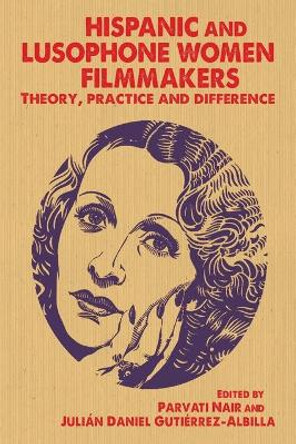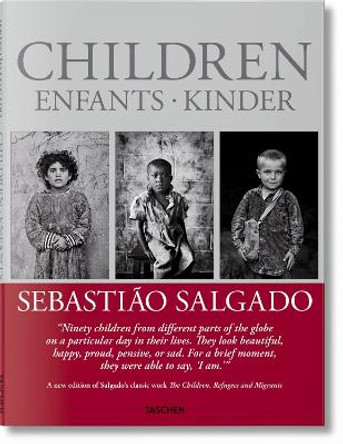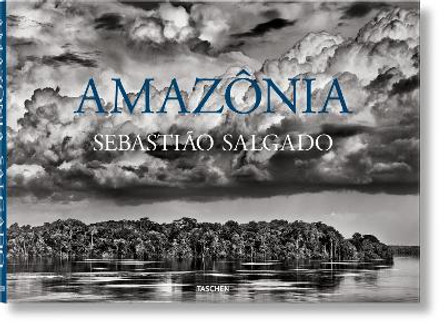Description
This is the first full critical study of the work of the popular documentary photographer Sebastiao Salgado. Salgado was born in Brazil (part of the global south) but his work has been criticized for the way it aestheticizes his subaltern subjects. Nair describes the painstaking work on individual prints done by the artist and his wife, and sees the aesthetic surface as contributing to the documentary purpose of the photographs by bringing more viewers to the work. Nair explores all the stages of Salgado's work, including the recent more ecological subjects, showing its planetary commitments.
Reviews
"Through exhaustive research on Salgado's work, Nair raises critical questions on ethics, politics, history, photography, and aesthetics. . . . Particularly poignant are the intimate conversations among Nair, Salgado, and his wife, Lelia, which add tremendous clarity to Salgado's worldview. Highly recommended for fans of Salgado's work and for those interested in photojournalism, documentary photography, and global humanitarian issues." - Shauna Frischkorn, Library Journal
"[A]dvance[s] a perceptive, penetrating understanding of social and natural discord encoded in the photographs." - Giovanna L. Costantini, Leonardo Reviews
"[T]his treatise is useful for its focus on Salgado and its contribution to the search for answers about the ongoing presence of what often seems an unsolvable but significant concern. Nair's book highlights another central core within Salgado's ongoing visual investigation: the varying relationship(s) between humans and the land. . . . Recommended. Lower-level undergraduates and above; general readers." - C. Chiarenza, Choice
"This work constitutes, to my knowledge, the first book-length study of the Brazilian documentarist's work, and as such it represents a significant contribution to Latin American scholarship on photography and beyond-to visual cultural studies writ large. The author effortlessly ranges across aesthetic theory, Latin American historiography, and postcolonial criticism, as well as theories of photography, in addressing her subject." - Jorge Coronado, The Americas
"One need not be familiar with photographer Sebastiao Salgado in order to uncover something innovative about visual studies within Parvati Nair's biography. . . . . Nair effectively compares and contrasts Salgado to other influential photographers across time and place . . . while at the same time confronting both his detractors and fans through a theoretical lens." - Bree Akesson, Visual Studies
"The importance of Salgado as a photographer is indisputable, he is the curator of chiaroscuro, and it is remarkable that Parvati Nair's A Different Light is the first full-length study of him to appear in print. Her book offers an interdisciplinary overview of his work." - Sean Sheehan, Dublin Review of Books
"A superb book on the most important photographer in the world today, A Different Light cuts a very wide swath: critical photojournalism, humanitarian documentation, political aesthetics, visual epistemology and historiography, representational theory, documentary ethics, the colonial gaze, the Frankfurt School, Latin America, Africa, the place of still photography in a rapidly moving world, ecology, art, profit, and concern. This is the book that the photography of Sebastiao Salgado deserves."-John Mraz, author of Looking for Mexico: Modern Visual Culture and National Identity
"An excellent study! Parvati Nair simultaneously places the work of Sebastiao Salgado within broader contexts and illuminates contemporary debates on aesthetics, ethics, and photodocumentary, with welcome emphasis on perspectives from the Global South. A must-read for all those concerned with photographs as visible evidence."-Liz Wells, Plymouth University, United Kingdom
"[A]dvance[s] a perceptive, penetrating understanding of social and natural discord encoded in the photographs." -- Giovanna L. Costantini * Leonardo Reviews *
"[T]his treatise is useful for its focus on Salgado and its contribution to the search for answers about the ongoing presence of what often seems an unsolvable but significant concern. Nair's book highlights another central core within Salgado's ongoing visual investigation: the varying relationship(s) between humans and the land. . . . Recommended. Lower-level undergraduates and above; general readers." -- C. Chiarenza * Choice *
"Through exhaustive research on Salgado's work, Nair raises critical questions on ethics, politics, history, photography, and aesthetics. . . Particularly poignant are the intimate conversations among Nair, Salgado, and his wife, Lelia, which add tremendous clarity to Salgado's worldview. Highly recommended for fans of Salgado's work and for those interested in photojournalism, documentary photography, and global humanitarian issues." -- Shauna Frischkorn * Library Journal *
"Nair's study is excellent because of its documentary quality. She interviews Salgado and his wife, Lelia Wanick Salgado, as to their projects and the contexts of their work and she is careful to discuss in depth the controversies surrounding his work and the museological issues associated with the privileged exhibition of misery and poverty. Because it is so meticulously documented, the reader has access to an excellent understanding of the Salgado project." -- David William Foster * Luso-Brazilian Review *
"With English language studies on Brazilian photography and photographers relatively scarce, A Different Light makes an important and very welcome contribution to the field."
-- Alice L. Allen * Bulletin of Hispanic Studies *
Book Information
ISBN 9780822350484
Author Parvati Nair
Format Paperback
Page Count 376
Imprint Duke University Press
Publisher Duke University Press
Weight(grams) 726g










